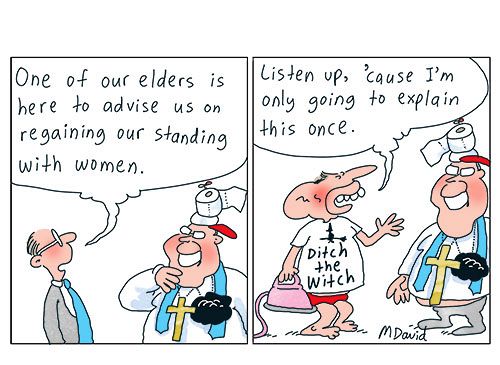A Channel 10 presenter's potential infringement in the Brittany Higgins rape trial raises questions on how the media should engage in ongoing judicial proceedings, writes Melissa Marsden.
THE TRIAL OF former Liberal Party staffer Brittany Higgins' alleged rapist has been delayed after a contentious speech by Channel 10 journalist Lisa Wilkinson.
ACT Supreme Court Chief Justice Lucy McCallum criticised the speech, arguing that Wilkinson (and others) had infringed on the presumption of innocence.
Chief Justice McCallum said:
“Somewhere in this debate, the distinction between an untested allegation and the fact of guilt has been lost.”
Bruce Lehrmann has been accused of (and denies) allegedly sexually assaulting Higgins in 2019. However, Higgins' allegations were only made public last year when interviewed on Channel 10’s The Project.
The allegations led to a widespread campaign advocating for women’s rights, sharp redress of parliamentary practices and a shift in focus on sexual assault.
Where the media’s role is perhaps traditionally seen as that of an independent watchdog, advocacy journalism, according to journalist and academic Margaret Simons et al, 'increases public engagement with issues important to society'.
There is no doubt that the alleged rape of a young woman in Parliament House is an important issue. Similarly, the presumption of innocence is at the core of our legal system.
According to the United Nations, the burden of proof in determining guilt on the part of a defendant must be beyond reasonable doubt and it is, therefore:
'... a duty for all public authorities to refrain from prejudging the outcome of a trial.'
In particular, this relates to not making public statements affirming the guilt of the accused and the media avoiding news coverage which undermines the presumption of innocence.
Wilkinson said in her Logies speech that “Brittany Higgins was a political problem” in the eyes of her opponents. She also praised Higgins for “helping to change the national conversation” and “never giving up”.
However, the speech has now caused an onslaught of criticism for potentially breaching presumption of innocence criteria and raises questions on how the media ought to engage in discourse on ongoing judicial proceedings.
The response to these events has been a hotbed of toxic debate on Lehrmann’s right to the presumption of innocence and the prospect that Wilkinson’s speech may have infringed on a jury’s ability to decide on the matter.
Australian Bar Association President Dr Matthew Collins AM QC said that while a presiding judge may be able to "impose a prohibition order preventing the media from talking about the issues in the case", the case could ultimately be prejudiced by a jury’s inability“to distinguish what happens in the courtroom and what happens outside it”.
Meeting the public interest test applied to journalistic reporting was always going to be problematic given the nature of the allegations.
The alleged rape of a woman within the walls of Parliament House – the House meant to represent Australians and represent our values – is indicative of serious deficiencies in the culture of our parliament. The very idea that such an event could occur here demonstrates a breakdown of this institution's core purpose: to protect the people.
Had Wilkinson’s speech focused on the systemic issues of how rape allegations are treated and the importance of advocating for justice for women more broadly, she may have been spared the seemingly predictable media and judicial tidal wave.
Instead, this poorly-executed attempt at advocacy journalism has now resulted in not only a delay in justice but a further debate on the validity of Higgins' claims and the claims of women more broadly.
Where Wilkinson’s role initially in the case was informing the public of Higgins' allegations, the decision to make such additional statements so close to the previously set trial date can only be described as negligent.
Lawyers for Channel 10 and Lisa Wilkinson have indicated they will provide written undertakings that the journalist and network will not publicly discuss Brittany Higgins’ rape allegation.
Advocacy journalism has a strong role to play in exposing injustice and spearheading the campaign for change, however, it is clear that the boundaries between this and responsibilities under the law can prove problematic.
The new trial date has been set for 4 October.
Melissa Marsden is a freelance journalist and PhD candidate at Curtin University. You can follow Melissa on Twitter @MelMarsden96, on BlueSky @melissamarsdenphd or via Melissa's website, Framing the Narrative.
Related Articles
- The men have spoken, now it's time for action
- #3 TOP STORY OF 2021: Alleged rape by Cabinet Minister deflected by Morrison Government
- Morrison's sexual harassment dog act trolls women
- Morrison’s Higgins investigation a very revealing cover-up
- Murdoch unites with women to threaten tearful Morrison’s leadership
 This work is licensed under a Creative Commons Attribution-NonCommercial-NoDerivs 3.0 Australia License
This work is licensed under a Creative Commons Attribution-NonCommercial-NoDerivs 3.0 Australia License
Support independent journalism Subscribe to IA.














